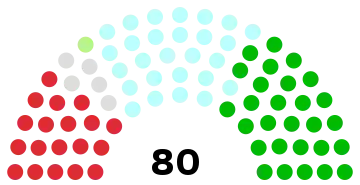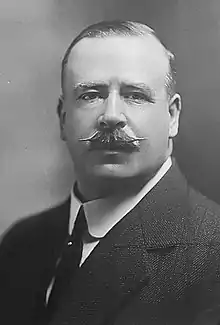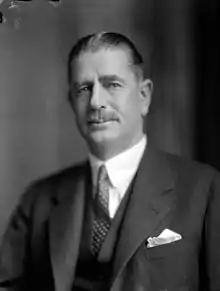1928 New Zealand general election
The New Zealand general election of 1928 was held on 13 and 14 November in the Māori and European electorates, respectively, to elect 80 MPs to the 23rd session of the New Zealand Parliament.
| |||||||||||||||||||||||||||||||||||||||||||||||||||||||||||||||||||||||
All 80 seats in the House of Representatives 41 seats were needed for a majority | |||||||||||||||||||||||||||||||||||||||||||||||||||||||||||||||||||||||
|---|---|---|---|---|---|---|---|---|---|---|---|---|---|---|---|---|---|---|---|---|---|---|---|---|---|---|---|---|---|---|---|---|---|---|---|---|---|---|---|---|---|---|---|---|---|---|---|---|---|---|---|---|---|---|---|---|---|---|---|---|---|---|---|---|---|---|---|---|---|---|---|
| Turnout | 88.01% | ||||||||||||||||||||||||||||||||||||||||||||||||||||||||||||||||||||||
| |||||||||||||||||||||||||||||||||||||||||||||||||||||||||||||||||||||||
 Results of the election. | |||||||||||||||||||||||||||||||||||||||||||||||||||||||||||||||||||||||
| |||||||||||||||||||||||||||||||||||||||||||||||||||||||||||||||||||||||
1928 was the year postal voting was introduced for certain specified groups (e.g. invalids) who could not get to a polling booth on election day.
The election
The 1928 election was held on Tuesday, 13 November in the Māori electorates, and on Wednesday, 14 November in the general electorates to elect a total of 80 MPs to the 23rd session of Parliament. A total of 844,633 electors were registered on the European roll, of which 743,691 (88.05%) turned out to vote.[1] All 80 electorates were contested.[2] 47 and 29 electorates were in the North Island and South Island, respectively, plus the 4 Māori electorates.[3]
In 1927, a faction of the decaying Liberal Party formed a new organisation, which was eventually named the United Party. In 1928, to the considerable surprise of most observers and many members of the party itself, United won a considerable victory, taking Auckland East and Grey Lynn from Labour. The United Government came to power with Labour support. Labour, forming the official opposition since 1926, were thus replaced by Reform.[4] Six Independents were elected (most with allegiances to the main parties. Four of these backed United, one supported Reform and one favoured neither.[5]
The Bay of Islands electorate went to Harold Rushworth of the Country Party after a recount of the votes, but the election was declared void January 1929.[6][7] Rushworth won the resulting by-election.[7] This marked the Country Party's first entry into Parliament, where it would retain a presence until 1938.
Result by party

The table below shows the result of the 1928 election.
 | ||||||
|---|---|---|---|---|---|---|
| Election results | ||||||
| Party | Candidates | Total votes | Percentage | Seats won | Change | |
| Reform | 74 | 271,259 | 35.87 | 281 | -27 | |
| United | 60 | 228,438 | 30.20 | 272 | +16 | |
| Labour | 59 | 197,953 | 26.17 | 19 | +7 | |
| Country Party | 5 | 11,990 | 1.59 | 1 | +1 | |
| Ratana | 3 | 4,924 | 0.65 | 0 | ±0 | |
| Independent | 30 | 41,767 | 5.52 | 5 | +3 | |
| Total | 231 | 756,331 | 80 | |||
1 Includes two who won as Independent Reform
2 United previously contested as Liberal
Votes summary
Initial composition of the 23rd Parliament
The United Party was organised in the House of Representatives, prior to the dissolution of the 22nd Parliament.
The Auckland Star reported on 18 September 1928, that:[8]
...the United Party were assembled yesterday in Wellington when Sir Joseph Ward accepted the leadership of the party. It had previously been decided, by unanimous resolution, that the party should go to the polls as "The United Party"...
The Evening Post newspaper reported on the same day that:[9]
The Rt. Hon. Sir Joseph Ward took his seat as Leader of the United Party in the House of Representatives this afternoon, Mr G.W. Forbes, who has led the Nationalist Party up to the present, relinquishing his former place in favour of Sir Joseph. From now until the end of the session the Nationalist Party ceases to exist under that name.
Key
United Reform Labour Country Party Liberal–Labour Ratana Independent
Notes
- "General elections 1853-2005 - dates & turnout". Elections New Zealand. Archived from the original on 14 November 2014. Retrieved 12 January 2011.
- "General Election". Auckland Star. LIX (255). 27 October 1928. p. 14. Retrieved 27 November 2012.
- Wilson 1985, p. 173.
- Bassett 1982, p. 46.
- Bassett 1982, p. 67.
- "State of Parties". Auckland Star. LIX (280). 26 November 1928. p. 10. Retrieved 27 November 2012.
- Wilson 1985, p. 232.
- "Leadership Settled". Auckland Star. LIX (221). 18 September 1928. p. 9. Retrieved 12 December 2013.
- "New Leader Takes His Seat". The Evening Post. CVI (58). 18 September 1928. p. 13. Retrieved 12 December 2013.
- Skinner 1929, pp. 1–7.
- "Electoral Notices". The Press. LXIV (19454). 30 October 1928. p. 15. Retrieved 1 December 2014.
- "Robertson, Dugald Macdonald, fl 1909-1971 : Papers". National Library of New Zealand. Retrieved 20 December 2014.
- "Notice of nominations received and polling places appointed". Dunstan Times (3395). 5 November 1928. p. 6. Retrieved 17 February 2020.
- "Christchurch Nominations". The Press. LXIV (19451). 26 October 1928. p. 14. Retrieved 20 December 2014.
- "Straight Grained". New Zealand Truth (1197). 8 November 1928. p. 6. Retrieved 2 November 2014.
- "Labour's Candidates". Maoriland Worker. 12 (299). 22 November 1922. p. 12. Retrieved 26 January 2014.
- "Nominations". Otago Daily Times (20550). 27 October 1928. p. 9. Retrieved 17 February 2020.
- "The election : nomination day". Evening Star (20009). 29 October 1928. p. 7. Retrieved 17 February 2020.
- "Election Candidates". The New Zealand Herald. LXV (19939). 7 May 1928. p. 10. Retrieved 20 December 2014.
- "Death in Action". The New Zealand Herald. LXXVIII (23984). 6 June 1941. p. 9. Retrieved 29 June 2014.
- "Electoral notices". The Press. LXIV (19454). 30 October 1928. p. 15. Retrieved 18 February 2020.
- "General notices". Manawatu Times. LIII (6748). 30 October 1928. p. 16. Retrieved 18 February 2020.
- "Electoral". Auckland Star. LIX (256). 29 October 1928. p. 5. Retrieved 18 February 2020.
- "Notice of nominations received and polling places appointed". Wairarapa Daily Times. 30 October 1928. p. 4. Retrieved 18 February 2020.
- "Patea". The Evening Post. CVI (85). 19 October 1928. p. 11. Retrieved 1 December 2014.
- "General election : date drawing nearer". Franklin Times. XVIII (124). 29 October 1928. p. 5. Retrieved 19 February 2020.
- "Declarations of result of poll for the electoral district of Tauranga". Bay of Plenty Times. LVII (9936). 24 November 1928. p. 1. Retrieved 26 February 2020.
- "Public notices". Waihi Daily Telegraph. XXV (7769). 1 November 1928. p. 3. Retrieved 26 February 2020.
- "Personal Items". The Evening Post. CIX (72). 26 March 1930. p. 13. Retrieved 20 December 2014.
References
- Bassett, Michael (1982). Three Party Politics in New Zealand 1911–1931. Auckland: Historical Publications. ISBN 0-86870-006-1.
- Mackie, Thomas T.; Rose, Richard (1991). The International Almanac of Electoral History, 3rd edition. Macmillan.
- Skinner, W. A. G. (1929). The General Election, 1928. Government Printer. Retrieved 4 December 2013.
- Wilson, James Oakley (1985) [First ed. published 1913]. New Zealand Parliamentary Record, 1840–1984 (4th ed.). Wellington: V.R. Ward, Govt. Printer. OCLC 154283103.
External links
| Wikimedia Commons has media related to 1928 New Zealand election. |
- Photos of Members of Parliament as elected in November 1928


.jpg.webp)
.jpg.webp)